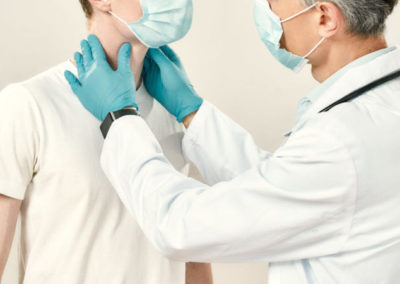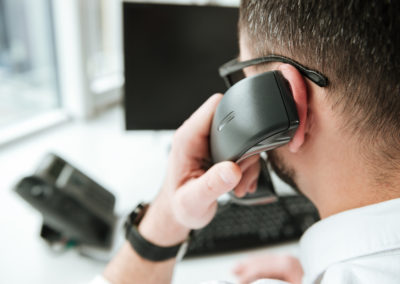‘Specialists give us precise advice with certainty, and I don’t feel concerned about the possibility of referring a patient unnecessarily or to the incorrect specialty. Overall, speaking with specialists speeds up my day and greatly benefits the patients.’
We spoke with Dr Suzannah Carrier, a GP in Salford, to find out how the use of Consultant Connect’s Telephone Advice & Guidance service has affected her ways of working.
What do you like the most about Consultant Connect?
‘The ease of having quick access to advice, without the need to wait on hold via switchboard. It’s like having specialist advice at your fingertips. If a specialist is not available to answer, there are other specialists that the system automatically diverts the call to, which saves time in comparison to being directed back to switchboard.
‘When I have needed support with the service, I have contacted the Consultant Connect team for support using the app. Within minutes, someone from the team called me to discuss the matter further. It’s reassuring to know that issues or queries are picked up by the team almost immediately.’
How did you get specialist advice before using Telephone Advice & Guidance via Consultant Connect?
‘I would request advice by writing a letter, or if the query was more urgent, I would try and speak to the clinician on call for that specialty. Waiting for a response from letters seeking advice can take weeks, and the process of waiting on the phone via switchboard for a clinician to be bleeped is time-consuming and often frustrating. Telephone Advice & Guidance, via Consultant Connect, is a much faster and easier method of obtaining advice.’
Are there any examples of when you’ve used Telephone Advice & Guidance that have helped you ensure better care for your patient?
‘General Medicine is a specialty I use frequently, and recently I sought Advice & Guidance from a consultant via this line regarding a patient whom I suspected had rhabdomyolysis. The patient presented fit and well; he had previously undertaken intense exercise and was passing dark urine. I took his bloods late on a Friday afternoon, but I was worried about the patient not being seen until after the weekend. After speaking with the consultant, they were able to alert the senior housing officer to chase the blood results, and this resulted in the patient being admitted later that evening.
‘It was a really effective way of preventing the patient from being sent to wait in A&E, which relieves pressure on ED. The patient was grateful for this and the fact that the communication between Primary and Secondary Care was positive and cohesive. The conversation was a good example of working together to ensure the smoothest journey for the patient.
‘On one occasion, I used Consultant Connect to send images of a patient’s rash to the Dermatology team. After reviewing the images, the team booked the patient into the emergency clinic. The patient avoided a lengthy wait in A&E, and I was reassured that they would not be on a routine waiting list. This enhanced access is so helpful when we, as GPs, are at the end of the line of what we can offer.’
What has your communication with Secondary Care been like?
‘Positive; specialists give us precise advice with certainty, and I don’t feel concerned about the possibility of referring a patient unnecessarily or to the incorrect specialty. Overall, speaking with specialists speeds up my day and greatly benefits the patients.’
Click here to view and download a PDF version of this case study.
If you have any questions about this service, please get in touch on 01865 261467 or at hello@consultantconnect.org.uk.





